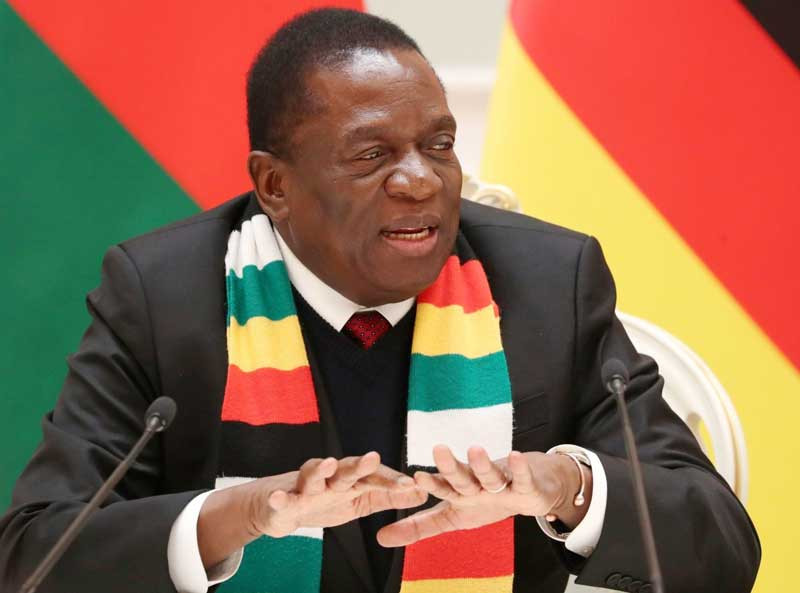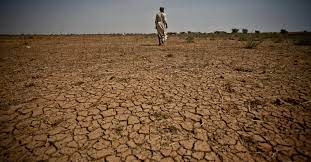
The 44th Ordinary Summit of Southern African Development Community (Sadc) heads of state and government held in Harare in August set the tone for the region to strengthen relations beyond sharing borders.
President Emmerson Mnangagwa took stewardship of the 16 - member bloc at the summit.
But the coming year promises to be a real mammoth task for the Zimbabwean President.
He will have to deal with a series of issues affecting the bloc, including accelerating battles against poverty and disease.
Several reports have indicated that intra-Africa trade has been lagging, compared to the continent's trade with the rest of the world.
Analysts say this has reduced the continent to a ‘modern trash can for processed goods’, while its primary goods are exported.
Ultimately, Africa’s raw materials - exported cheaply - benefit conglomerates in other regions and help them strengthen their economies.
Sadly, Africa remains poor, with broken value chains, shrinking job markets, low production and food insecurity.
- Mr President, you missed the opportunity to be the veritable voice of conscience
- ED to commission new-look border post
- Zanu PF ready for congress
- EU slams Zim over delayed reforms
Keep Reading
This week, regional integration experts said Sadc must seriously consider creating an alternative to this exploitative model by offering more incentives to companies that use inputs from Africa in manufacturing, which promotes economic diversification and intra-Africa trade.
They said visa openness was among critical elements in promoting trade and investment within Sadc.
The benefits of visa openness cannot be downplayed.
They range from boosting the region’s tourism sectors to pursuing business interests and education.
Sadc can build strong economies on the back of its home grown industries and domestic travel.
During the 2022 Africa Travel Indaba in Durban, South Africa, Tourism Business Council of South Africa official, Tshifhiwa Tshivhengwa, said failure by Africa to implement a unitary visa system was a huge impediment to regional integration and tourism growth.
“There is no point in someone who has obtained a visa to come to South Africa having to obtain another to go to Zimbabwe, eSwatini, Namibia or elsewhere. We should be able to recognise the visa that each of our countries has already issued,” Tshivhengwa said.
South Africa’s former Tourism minister Lindiwe Sisulu echoed the same sentiments, reminding delegates that Africa was a huge market.
She said Africans must take advantage of opportunities offered by the region to enhance economic growth.
“As we do business, we must remember that our continent is also our own market,” she said.
“All countries in Africa have potential for domestic tourism growth. Intra-continental tourism from Africa’s rapidly growing economies and growing middle class is an opportunity begging to be explored. We need improved collaborative efforts between our countries to achieve this,” Sisulu said.
The unified visa system, which was signed in 1998 led by Sadc’s Protocol on the Development of Tourism, is yet to be fully operational.
Yet the United Nations World Tourism Organisation believes visa policies are among the most important tools for influencing tourism growth.
To date, the Sadc Uni-visa project is being piloted by only five member states.
These are Angola, Mozambique, Namibia, South Africa, and Zimbabwe.
According to the Africa Visa openness report 2023, the African Union’s Protocol on the Free Movement of Persons was signed by only half of Sadc member states.
But these do not include island states and members of the Southern African Customs Union (Sacu).
Interestingly, most Sadc member states signed the Sadc Protocol on Facilitation of Movement of Persons in 2005. But it was only ratified by Sacu members, and Mozambique, hence not in force. Currently, only Namibia and Botswana have a binding agreement to travel using identity cards signed in 2023.
“We are taking the first steps towards realisation of (the) Sadc Protocol on the facilitation of movement of persons - not only goods but persons. In the same vein, steps like these could form a foundation whose stepping stones may lead to the path in inspiring Africans to attain continental integration,” the late Namibian President Hage Geingob said during the signing ceremony.
Sadc ranks second in Africa on visa openness with Seychelles in the top 10.
Madagascar, Mauritius, Mozambique and Tanzania are in the top 20.
The least ranking countries in Sadc are South Africa, Botswana, Eswatini, Lesotho, Angola and the Democratic Republic of Congo.
According to the report, compared to all regional economic communities, Sadc’s average fell slightly in 2023 and this was induced by changes in countries like Angola, which replaced its visa-on-arrival policy with visa-ahead-of-travel.
However, as a bloc, Sadc is one of the AU’s regional economic communities recognised as migration-friendly, according to the Africa Visa Openness Report 2023, jointly published by the African Development Bank and the AU Commission.
“Namibia extended its visa-on-arrival policy to Mauritanians and Nigerians.
However, Nigerian travellers have been removed from the policy.
Mozambique exempted Ivorian and Ghanaian travellers from all visa requirements.
In October 2023, however, Angola extended its visa-free regime to several African countries.
This will advance the country’s—and the region’s Africa Visa Openness Index score going forward,” the report read in part.
The country-to-country travel configurations for Sadc countries who reciprocate visa-free policies account for 60%.
“Mauritius, Seychelles, and Zimbabwe allow the citizens of the most Sadc members to enter their territory visa-free; in the case of Zimbabwe, 13 members reciprocate.
"Four other countries—Botswana, Mauritius, South Africa, and Zambia—enjoy visa-free reciprocity with 12 other Sadc countries.”
In 2019 Sadc had a combined population of 354 million. This figure was expected to rise to 618 million by 2043.
The beauty about this is the majority are a youthful population, positioning the region at a human capital advantage.
Visa openness has the potential to pro pel the region to the projected US$2,1 tril lion aggregate economy by 2045, up from US$924,3 billion in 2019, according to pre dictions by the Alize le Roux (2024) Sadc report.
Already, there are projections of massive economic growth for Sadc. But strengthening policies like visa openness will accelerate growth.
“The stability scenario sees Sadc’s regional GDP (gross domestic product) per capita increasing to US$6 068 by 2043 compared to US$5 719 for the Current Path forecast, an increase of US$349.”
“Sadc sees a 2,5 percentage point reduction in extreme poverty rates as a result of the Education Scenario, compared to the Current Path forecast. This translates to 16 million fewer people in poverty by 2043.”
Visa openness is also key to the African Continental Free Trade Area, which hugely capitalises on exports, improved productivity and increased trade and economic freedom.
“The Free Trade scenario translates to significant reductions in poverty rates across the Sadc region. This is a reduction of seven percentage points or 45 million fewer people in poverty by 2043 compared to the Current Path forecast,” the report noted.
Governance expert and executive dean in the faculty of social science and humanities at Bindura University of Science Education, David Makwerere said Sadc needed strong political will to strengthen cooperation.
“For regional cooperation to be strengthened, it is a matter of one respecting the already existing regional protocols within the Sadc region. On paper the policies are there but what is missing is the political will to take the cooperation to the next level to the extent that the openness then can be seen to be working on the ground and for the ordinary citizen. Currently what we have seen is that cooperation is probably defined by national interest and often times in very overt ways where it is a matter of trying to defend the national interest or to maintain some hegemonic influences that would then ultimately undermine cooperation efforts,” Makwerere said.
Regional integration expert Joseph Ngwawi, acknowledged the existence of enabling policies to strengthen visa openness. However, he said there were still challenges in fulfilling commitments.
“Legal instruments that have been put in place that in a way facilitate free movement of persons across Sadc include the Protocol on Education and Training (1997), Protocol on Development of Tourism (1998) and the Protocol on Employment and Labour (2014),” he said.
“All these legal instruments have provisions that allow citizens of one country to enter and work or learn or enjoy the facilities of another Sadc member state without inhibition,” Ngwawi said.
He added that visa openness guarantees huge benefits to Sadc's economy, especially foreign direct investment, given that investors are attracted by environments where they can move freely and establish businesses without bureaucratic hurdles.
“Visa openness serves as a significant incentive for foreign investors considering opportunities in the Sadc region. As you know, foreign investors often avoid jurisdictions with cumbersome setup requirements or barriers to doing business. Instead, they are drawn to countries and regions that offer attractive operating environments, including the ease of obtaining work permits for the experts they wish to bring into the country. While visa openness is not the only factor influencing investment decisions, it is undoubtedly one of the key considerations that can sway investors toward a particular location.”
However, Ngwawi also noted that a number of challenges still deter harmonisation of visa regulations.
“The issue of economic disparities among Sadc countries is perhaps the main challenge impacting efforts to harmonise visa regulations in the region,” he said.










